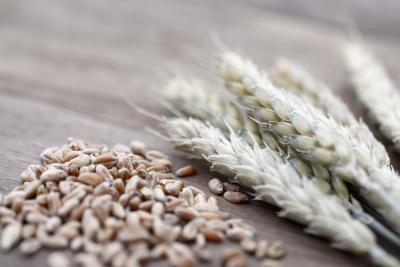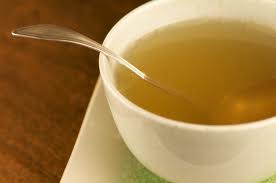-
May24
4 Ways to Nourish Your Leaky Gut
Filed under: Diet;31 Comments




 by
by 
When you suffer from Leaky Gut Syndrome it’s important to place emphasis on nourishing your body. By supplying your gut with all of the nutrients that it needs, it will have all the necessary building blocks to repair the cells that line your intestinal wall.
But for most Leaky Gut sufferers, this is easier said than done.
When your digestive tract becomes compromised as it is with Leaky Gut, then your ability to digest and absorb nutrients is greatly reduced.
So here are some helpful tips to help you get the most out of your food.
1. Avoid Nutrient Blocking Foods

Believe it or not but some foods actually work to block the absorption of nutrients when you eat them.
Some of the biggest culprits are foods that contain Phytic Acid which is found in the hulls of grains, legumes, nuts, and seeds just to name a few. And when you consume foods that contain Phytic Acid it literally binds itself to minerals within the digestive tract and prevents your body from absorbing them.
This is a big reason why many of these foods require cooking and proper preparation to minimize amount of Phytic Acid present. But you can rest assured that 99% of grains are not properly prepared which is a reason in itself to avoid them
2. Cook Your Veggies
Many people will argue this because they will say that raw vegetables contain natural enzymes to help aid in digestion. And they are partially correct. And they will also say that cooking vegetables leads to a loss of nutrients due to the heating process. And again, they are partially correct.
But the issue has much less to do with how many nutrients the vegetable has as it does with how many of those nutrients your digestive tract can absorb. Raw vegetables are very difficult to digest thus there are far less of these nutrients made available for you to absorb. And if they aren’t absorbed, they’re excreted.
So do yourself a favor and cook your veggies.
3. Eat Your Meat
It’s very common to hear people talk about how nutritious vegetables are. In fact, as kids we were all told that we had to eat our vegetables because they are the healthy part of the meal. But in a 1-on-1 comparison between meat and vegetables, meat wins hands down.
Per volume, meat is far more nutrient dense than vegetables. And many of the nutrients found in meat can’t be obtained from vegetables because they are fat soluble and require fat for proper absorption.
So be sure to eat meat with every meal.
4. Bone Broths

You’ve probably heard it before… You need plenty of minerals for strong bones. So it should make perfect sense that bone broth (properly made) would naturally be loaded with minerals. This is because when you make bone broth you are literally pulling the high mineral content out of the bones and into the broth.
Plus, it’s loaded with plenty of other beneficial nutrients such as amino acids.
It should be no surprise that most every single person who suffers from Leaky Gut Syndrome or that has compromised digestion is not getting the necessary nutrients that they need from their diet. And these nutrients are the building blocks for repairing your Leaky Gut.
By following these simple tips then you’ll be on your way to nourishing your Leaky Gut and giving it the best opportunity possible to heal.





 by
by 
31 responses to “4 Ways to Nourish Your Leaky Gut” 
-
I believe bone broth is really nutritious. I hope that you will have some good suggestions for the few people like four other people besides myself that cannot eat beef, chicken, or pork. I did try making fish broth, but it smells horrid. I woould definitely have to make it when my husband is at work. I like fish, but dishes do not taste good with more thann a couple tablespoons of fish broth, if that.
-
Have you tried making lamb broth? You can also make bison broth, or turkey broth! Any bones work…
-
As many people are finding out…the gut enterocytes can not heal properly without the combinations of minerals, amino acids, collagen, and other distinct nutrients that come from bone broth. I’m glad Karen is planning a whole blog on this important subject!
-
What’s the most inexpensive type of bones to get? I was looking at soup bones one day and considering that there’s no meat on them I found them expensive!
-
Klea Lundgreen March 4th, 2012 at 00:32
Been trying to cook my vegetables, like you suggest. But what about blending them in a vitamix blender? Does that break them down and make them more absorbable? Or is it better to just eat them cooked?
-
David July 10th, 2012 at 15:01
Hi Karen,
Indeed a great way to speed up your healing.
Do you know by chance if broth could be not beneficial on cases of bacterial overgrowth leaky gut?or some amoeba?when I’m eating broth chicken oxtail etc it’s somehow ok in the first part of the bowel but megabloating in the last part of colon and rectum, and gases stay inside giving a lot of nausea and probls. I’ve got candida,giardiasis and possibly amoeba plus yersinia bacteria.
And less friendly flora as we find out these seems to feed some of the bad guys.
Many thanks, David -
Patrick July 11th, 2012 at 11:34
Hi, I have heard that many veggies are best when cooked.
What about Juicing Raw Veggies? I have heard that chlorophyl is good for healing the gut.
Please let us know.
Thanks!
Patrick -
Angela Lopez July 31st, 2012 at 03:35
I love my broth! My speghettii sauce taste amazing with chicken broth added. I want to use the meat, but am having a very difficult time determining when, and mostly how, to remove it. I use a crockpot on low. Any suggestions? Can I baked the chicken and then use what is left to make broth?
-
Hi,
Just diagnosed with LGS so this is all new to me !
When you say no soy products does that include soya milk ?
Thanks
Petra -
Patricia September 27th, 2012 at 13:50
Just a note…. Are people really allergic to all that stuff ??? Could it be the chemicals & processing in those foods ?? I had horrible reactions to milk & coffee. I switched both to organic & have no problems. Thank goodness !! Thanks for all the great info !!
-
Hi
Just wondering about animal meat causing inflammation ” endotoxemia”. Is this an issue in consuming bone broth?
-
So the secret would be to avoid “red meat” ie beef in the broth? I believe red meat by itself is the inflammatory bit.
-
Thanks for this, Karen. Question: when you say “cook your vegetables”, what exactly do you mean? Can you give any preparation specifics? ( eg. Steaming, sautéing, etc..)
-
Irene April 8th, 2013 at 16:54
Question about bone broth, although I’ve been told by my doctor to eat bone broth, I find it difficult to make, it takes too long. Can I supplement for the collagen with Youtheory Collagen advanced formula, type 1,2 & 3? Does that supplement serve the same purpose as bone broth?
-
you have mentioned Phytic Acid is in the hulls, so is it ok to eat dehulled grains, seeds, legumes. Ofcourse first we soak and then cook legumes like lentils.
-
Hi Karen, I guess it’s better to use organic bones but if you can’t afford organic is it ok to use none organic thanks for your time
-
Hi another question what’s the average time it take to heal your gut?H
-
The website for making bone broth doesn’t come up. It says that domain is for sale. Any other ideas?
-
The website for making bone broth doesn’t work. It says the domain is for sale.






Pat Stoa August 29th, 2011 at 16:41